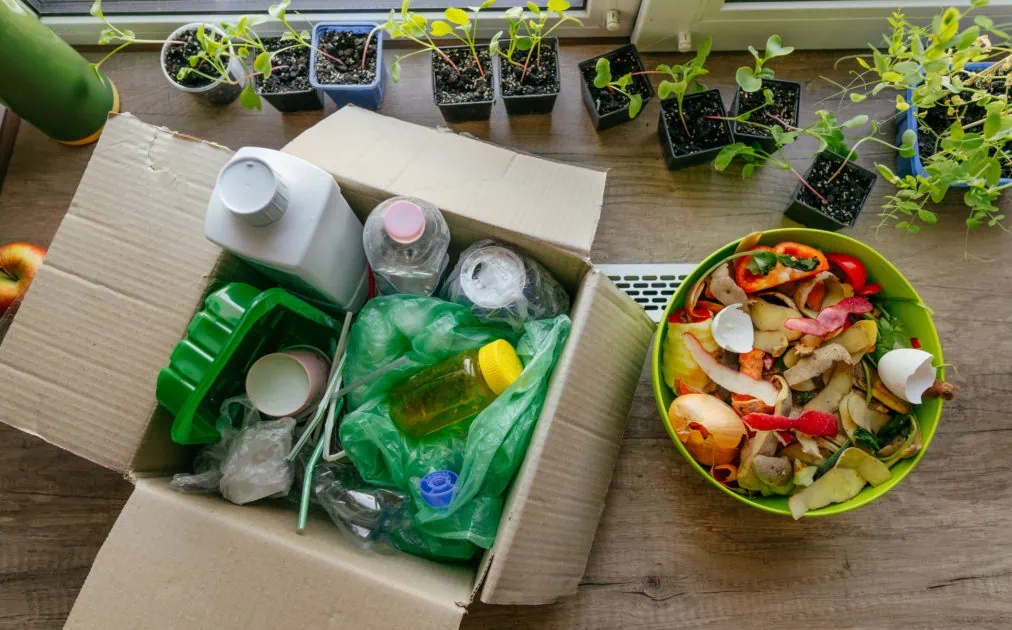In today’s eco-conscious world, understanding the ins and outs of recycling and composting is more crucial than ever. As we strive for a greener planet, knowing the best practices for managing our waste can make a significant difference. From identifying which materials are recyclable to setting up a compost bin in your backyard, this article dives deep into how you can contribute to environmental sustainability.
Whether you’re a recycling rookie or a composting connoisseur, you’ll find valuable tips to enhance your green routine. So, let’s embark on this journey together, exploring efficient ways to recycle and compost, ultimately reducing our ecological footprint and nurturing our planet.
What are the Best Practices for Recycling?
Recycling, a critical component of modern waste reduction, plays a significant role in conserving resources, saving energy, and mitigating pollution. To optimize its benefits, adhering to best practices is essential. The most effective recycling practices involve several key steps, each tailored to enhance the process’s efficiency and impact.
By following these guidelines, individuals can contribute to a more sustainable and efficient recycling system, ultimately supporting broader environmental conservation goals.
Identifying Recyclable Materials
Recognizing which items can be recycled is the first step toward effective recycling. Commonly recyclable materials include paper, cardboard, glass, metal, and certain plastics. Proper identification is crucial for reducing contamination and ensuring the efficiency of the recycling process.
Sorting Recyclables by Type
After identifying recyclables, the next important step is sorting them by type. This involves organizing materials into separate bins for paper, plastics, metals, and glass. Such sorting is essential for maintaining the quality of materials for recycling and ensuring they are processed correctly.
Cleaning Recyclables Before Disposal
To minimize contamination and enhance the recycling process, cleaning recyclables before disposal is recommended. Rinsing containers to remove food residue is a simple practice that can significantly improve the quality of the recycling stream.
Understanding Local Recycling Guidelines
A key aspect of effective recycling is adhering to local recycling guidelines. This might require checking local government or waste management websites for up-to-date information on recyclable materials and preparation instructions. Being informed about these guidelines ensures that recycling efforts are aligned with community standards and contribute to the overall efficiency of the recycling system.
What are the Best Practices for Composting?
Composting is a sustainable method to recycle organic waste into nutrient-rich soil, which is crucial for reducing landfill dependency and enhancing garden health. The process involves several key practices for optimal results. By following these best practices, individuals can effectively contribute to environmental sustainability while benefiting their gardens.
Identifying Compostable Materials
Understanding what can be composted is foundational. Fruit and vegetable scraps, coffee grounds, eggshells, and yard waste are prime materials. They break down to enrich the compost with essential nutrients.
Setting up a Composting System
Choosing the appropriate composting setup is crucial for success. Whether it’s a compost bin, tumbler, or a basic pile, the selection depends on the individual’s space and composting needs.
Maintaining the Compost Pile
For compost to decompose effectively, regular maintenance is necessary. This includes regularly turning the pile to aerate it and monitoring moisture levels to ensure the materials break down efficiently.
Using Compost in Gardening
Incorporating compost into gardening practices can significantly enhance soil quality. Mixing compost into the soil or using it as mulch provides plants with vital nutrients, improves soil structure, and helps retain moisture, promoting healthier plant growth.
Why is Proper Waste Sorting Important?
Proper waste sorting stands as a cornerstone for environmental conservation, economic efficiency, and societal well-being. By diligently separating recyclables and compostables from general waste, we significantly reduce reliance on landfills. This action directly contributes to reducing greenhouse gas emissions and conserving natural resources, crucial steps in combating climate change.
Environmental Benefits
Proper waste sorting plays a pivotal role in reducing landfill waste and cutting down greenhouse gas emissions. These efforts are crucial for environmental conservation, helping to mitigate climate change and preserve our planet for future generations.
Economic Benefits
Efficient waste sorting and management can significantly lower waste management costs and even generate revenue. This economic incentive encourages businesses and communities to invest in sustainable waste practices, promoting a circular economy.
Social Benefits
Implementing effective waste sorting strategies contributes to job creation in the recycling and composting industries. This not only supports economic growth but also enhances community engagement and awareness towards sustainable living and environmental stewardship.
How to Improve Recycling and Composting Habits?
Enhancing recycling and composting habits involves a multifaceted approach centred on education and community involvement.
Professional cleaning services, like KCS Kitchener Cleaning Services, can help support these efforts by ensuring proper waste sorting and encouraging eco-friendly cleaning practices at home or in the workplace.
By adopting these strategies, individuals and communities can significantly improve their recycling and composting habits, leading to a more sustainable and environmentally conscious society
Educating Oneself on Local Guidelines
Gaining a thorough understanding of local recycling and composting regulations is fundamental. This can be achieved by attending workshops or conducting online research, ensuring that one’s efforts are in line with the best practices.
Reducing Consumption of Non-Recyclable Materials
Making a conscious effort to minimize the use of items that cannot be recycled is a key step toward reducing waste. This involves making informed choices about daily consumption.
Opting for Products with Minimal Packaging
Selecting products that come with less packaging plays a significant role in waste reduction. This simple choice can have a profound impact on environmental sustainability.
Encouraging Community Participation
Fostering a sense of community involvement in recycling and composting activities is essential. Collective action can greatly enhance the effectiveness of these initiatives.
Organizing Local Clean-Up or Recycling Drives
Leading or participating in local clean-up or recycling events can inspire and mobilize community members to take action, fostering a collaborative approach to environmental stewardship.
Challenges in Recycling and Composting
Recycling and composting efforts, essential for maintaining environmental sustainability, encounter several significant challenges. Overcoming these challenges is crucial for improving recycling and composting effectiveness on a global scale.
Lack of Access to Facilities
In rural areas or regions without curbside pickup, individuals often face significant barriers to accessing recycling and composting facilities.
Confusion Over Recyclable Materials
The variations in recycling rules across municipalities lead to confusion regarding which materials are recyclable, increasing the risk of contamination.
Limited Space for Composting
Apartment dwellers or those with small yards encounter challenges in finding enough space to effectively engage in composting practices.
Solutions for Apartment Dwellers or Those with Small Yards
To address the issue of limited space, exploring innovative solutions such as participating in community composting programs or utilizing compact composting units can offer practical alternatives for effective waste management.
Supporting Community Recycling and Composting
Enhancing community engagement in recycling and composting is pivotal for environmental sustainability. By adopting these approaches, communities can cultivate a culture of sustainability and take collective action towards significant waste reduction.
Provide Clear Information
Utilizing signage on bins and community newsletters effectively communicates essential recycling and composting information, guiding community members on correct practices.
Offer Community Composting Programs
Creating shared composting sites for food scraps provides a communal solution for individuals who lack the space for personal composting, fostering wider participation in organic waste reduction.
Implement Curbside Recycling Services
Regular pickups for recyclables, separate from trash, greatly enhance the convenience and efficiency of recycling efforts, encouraging higher community engagement in sustainable waste management practices.
Turning Everyday Actions into Environmental Impact
Recycling and composting aren’t just chores—they’re powerful habits that protect our planet, conserve resources, and build a healthier future. By learning best practices and overcoming common challenges, we can all play a part in reducing waste and nurturing the Earth.
At KCS Kitchener Cleaning Services, we believe a clean home starts with a clean conscience. That’s why we champion sustainable practices that keep your space spotless and your eco-footprint light. Join the movement—take action today, sort smarter, and turn your daily routine into a legacy of change.


